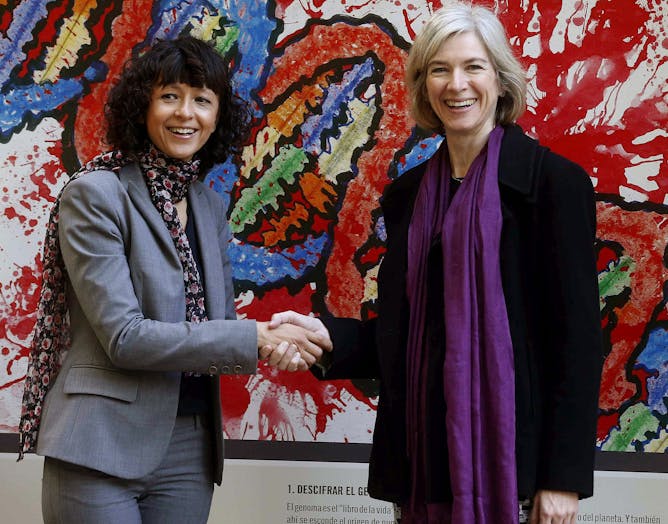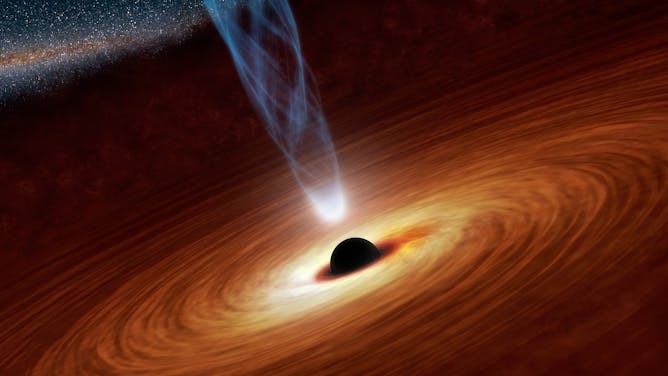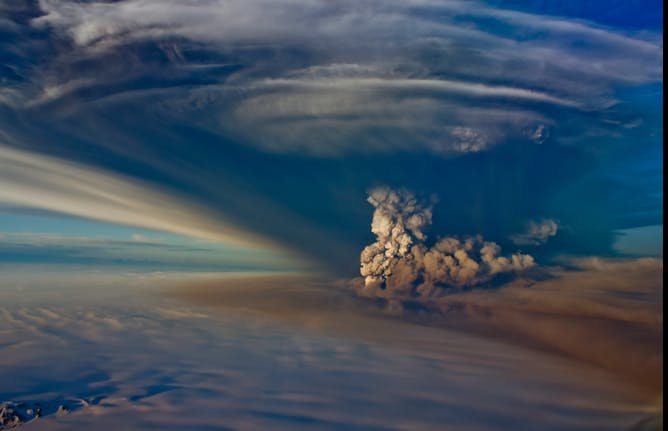|
|
|
|
How do you lose 16,000 positive cases of coronavirus? By using an Excel file format that has been out of date for more than a decade to update your daily tallies. The “technical glitch” in the UK’s test and trace system that took place at the weekend has been embarrassing for the government and disquieting for the close contacts of those 16,000 people, who were not notified quickly enough that they had been exposed to COVID-19. Data science
expert Paul Clough explains why Microsoft Excel should never have been used in the first place for such an important task, while
the chair of the European Spreadsheets Risks Interest Group, Simon Thorne, explores the UK government’s long history of embarrassing spreadsheet errors.
Nobel Prize week is well and truly underway, with scientists Emmanuelle Charpentier and Jennifer A. Doudna awarded the prize for chemistry for their work on genome editing, the first time a science Nobel has been given to two women. The physics prize was awarded to Roger Penrose, Reinhard Genzel and Andrea Ghez for their research into black holes – a fitting tribute to the significance of these celestial phenomena that help create the architecture of the universe we live in.
Back on Earth, Iceland’s Grímsvötn volcano is showing signs that it may be about to erupt. Could this be Eyjafjallajökull mark two? A volcanologist explains.
|
Megan Clement
Commissioning Editor, COVID-19
|

|
|

PixieMe/Shutterstock
Paul Clough, University of Sheffield
There are any more sophisticated programs available for managing health data. Why did Public Health England use Microsoft Excel?
|

Emmanuelle Charpentier (L) and Jennifer Doudna (R).
J.L. Cereijido/EPA
Kalpana Surendranath, University of Westminster
Emmanuelle Charpentier and Jennifer Doudna share the Nobel Prize for Chemistry for their CRISPR/Cas9 tool to rewrite the blueprint of life.
|

NASA/JPL-Caltech
Andrew King, University of Leicester
Roger Penrose helped resurrect Einstein's general theory of relativity, and Reinhard Genzel and Andrea Ghez showed there was a black hole in the middle of our galaxy.
|

Volcano eruption in 2011.
EGILL ADALSTEINSSON/EPA
Dave McGarvie, Lancaster University
Icelandic authorities have recently raised the threat level of the Grímsvötn volcano.
|
Politics + Society
|
-
Michael Joseph Richardson, Newcastle University
The identity and purpose of universities as spaces of free thinking depends on it.
-
Christopher Gidlow, Staffordshire University
COVID-19 changed rough sleeping from a social issue into a public health one – but if numbers are to stay down, it needs to remain a political priority.
-
Marzieh Kouhi-Esfahani, Durham University
As fighting continues between Armenia and Azerbaijan over the disputed region of Nagorno-Karabakh, neighbouring Iran has offered to mediate.
|
|
Science + Technology
|
-
Simon Thorne, Cardiff Metropolitan University
Government needs to take its spreadsheets more seriously.
-
Dr. Imtiaz Khan, Cardiff Metropolitan University; Ali Shahaab, Cardiff Metropolitan University
Estonia has digitised 99% of its public services.
|
|
Environment + Energy
|
-
David Durand-Delacre, University of Cambridge; Carol Farbotko, University of the Sunshine Coast; Christiane Fröhlich, German Institute of Global and Area Studies; Ingrid Boas, Wageningen University
Climate migrants still tend to move to places they know or have connections to through their social networks.
-
Gavin Harper, University of Birmingham; Allan Walton, University of Birmingham
China has a monopoly on rare earth metals, so where will the materials for the UK's wind revolution come from?
|
|
Health + Medicine
|
-
Grace C Roberts, Queen's University Belfast
A new study finds a link between having young children at home and a lower risk of catching COVID-19.
|
|
Education
|
-
Paul Ashwin, Lancaster University
Basing the worth of a degree on how much graduates earn overlooks whether there is something intrinsically valuable about higher education itself.
|
|
Arts + Culture
|
-
Christopher John Chandler, University of Hertfordshire
A battle is raging between distributors with expensive blockbusters and cinemas with empty seats.
|
|
| |
Featured events
|

|
Online, Leeds, Leeds, LS2 9HD, United Kingdom of Great Britain and Northern Ireland — University of Leeds
|

|
Swansea University , Singleton Park, Swansea, Swansea [Abertawe GB-ATA], SA3 3DX, United Kingdom of Great Britain and Northern Ireland — Swansea University
|

|
Sustainable Places Research Institute, Cardiff University, Cardiff, Cardiff [Caerdydd GB-CRD], CF10 3BA, United Kingdom of Great Britain and Northern Ireland — Cardiff University
|

|
East Road, Cambridge, Cambridgeshire, CB11PT, United Kingdom of Great Britain and Northern Ireland — Anglia Ruskin University
|
|
|
|
| |
| |
| |
| |
| |
|
|
|
|
|
|
|